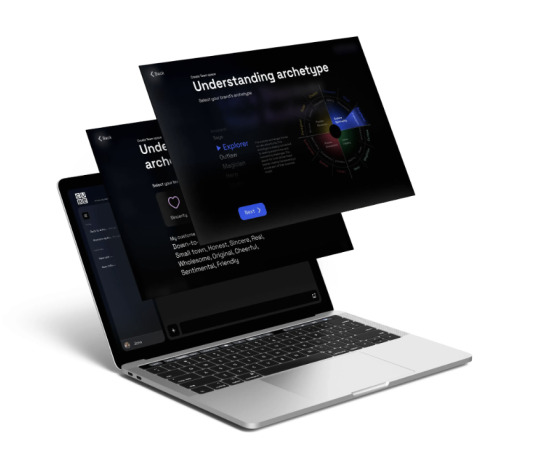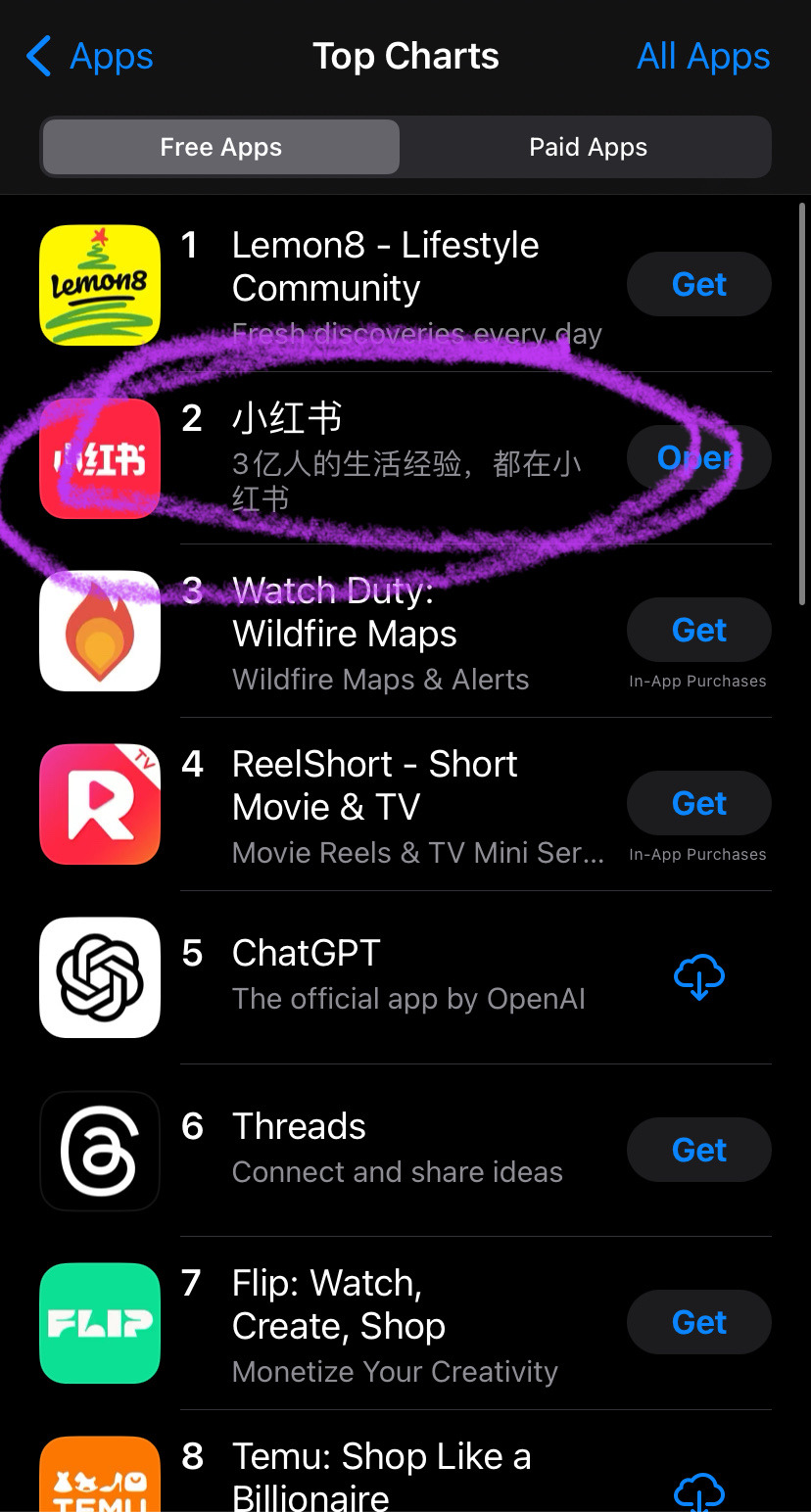#big data marketing
Explore tagged Tumblr posts
Text
Best AdTech Ecosystem Company in Bangalore | Zero Party Data - CUBERA
Cubera leads the AdTech industry by empowering brands with access to zero and first-party data, enabling transformative advertising strategies. Our data-driven approach enhances campaign efficiency, transparency, and performance, making Cubera the go-to platform for innovative advertising solutions. Cubera’s services ensure seamless, effective campaigns. With Omni-Channel Targeting, AI-powered Cohort Analysis, and comprehensive Ad Services, brands can reach their audience across platforms with precision and transparency, maximizing engagement and ROI. Cubera’s powerful suite of tools—Cube, Cubera Identity Graph, Vertex, and Edge—delivers advanced data integration and targeting capabilities. These tools empower brands to execute highly efficient and transparent ad campaigns, leveraging the latest in AdTech innovation.

#data company#best marketing automation software#marketing automation agency in india#big data marketing#zero and first party data
0 notes
Text
Leveraging Big Data for Personalized Marketing Campaigns
Alright, let’s dive into how leveraging big data is not just a smart move for personalized marketing campaigns but practically a necessity if you want to keep your edge in today’s fast-paced market. It's all about understanding and acting on the colossal amount of data at our fingertips, and if you’re not on board yet, mate, you’re missing out big time.
Firstly, big data allows businesses to understand their customers in unprecedented detail. It's like having a pint with each of your customers and getting to know what ticks them off, what gets them excited, and importantly, what will get them to open their wallets. By analyzing customer behavior, preferences, and trends, companies can tailor their marketing strategies to be as individual as the customers themselves. This isn’t just throwing darts in the dark; it’s hitting the bullseye every time.
However, there’s a catch. With great power comes great responsibility. Handling this massive amount of data requires sophisticated tools and, importantly, a savvy team that knows what they’re doing. It’s not just about collecting data willy-nilly; it’s about analyzing it with a fine-tooth comb to glean insights that can inform strategic, personalized marketing moves. If you’re lagging in this department, now’s the time to up your game, unless you fancy being left in the dust by competitors.

Then there’s the aspect of real-time engagement. Imagine being able to adjust your marketing strategies on the fly based on real-time data. That’s the power of big data analytics. It enables businesses to be agile, responding to the latest trends, feedback, and even the current mood of the market. This level of dynamism is crucial for keeping your brand relevant and engaging in today’s ever-changing landscape. If you’re not utilizing this, you’re essentially playing a game of catch-up, and let’s be honest, nobody wants to be that guy.
Finally, leveraging big data for personalized marketing isn’t just a fancy strategy; it’s becoming the bread and butter of successful businesses. The fear of missing out (FOMO) is real in this context. If you’re not personalizing, you’re not only missing out on maximizing your marketing efforts but also risking becoming irrelevant to your audience. In the UK, where brand loyalty can be as fleeting as the weather, staying ahead with personalized, data-driven campaigns is not just good business sense; it’s critical.
So, the bottom line? Get on the big data bandwagon or risk being left behind. It’s a no-brainer, really. Personalized marketing campaigns powered by big data are the future, and the future is now. Don’t let FOMO be your company’s downfall. Embrace the data, make it work for you, and watch as your marketing campaigns hit new heights of success. Cheers to that!
#big data marketing#personalized campaigns#customer analytics#real-time engagement#data-driven strategies#marketing agility
1 note
·
View note
Text
got jumpscared by these ‘cus it looks like he is a junior analyst at an investment bank




from mclaren’s ig
#he would be lethal on a Bloomberg terminal#his data-backed rizz would have no limits#that’s why his forehead’s so big it’s full of analytical secrets#Oscar piastri#op81#you don’t get him he’s just at one with capital markets like a gen z dollar sign megamind#wiz.yaps
400 notes
·
View notes
Text
Just saw an ad for an "AI powered" fertility hormone tracker and I'm about to go full Butlerian jihad.
#in reality this gadget is probably not doing anything other fertility trackers aren't already#the AI label is just marketing bs#like it always is#anyway ladies you don't need to hand your cycle data over to Big Tech#paper charts work just fine
9 notes
·
View notes
Text
Oldboy was a Warning of Today's Big Data Dystopian Future
I thought I would finish today by showing stills from one of my favorite arthouse movies of the 21st century. A disclaimer, Oldboy is not my favorite arthouse movie. Nor is it my favorite Chanwook Park movie. One of these days I'll send him up in a subsequent post.

2003
For those of you who do not know, Oldboy is the story of a scoundrel named Oh Dae Su who is kidnapped without warning and without knowledge of who his captor is.

Struggling to cope with his captivity for fifteen years, he is suddenly released with nothing but the obsessions that kept him alive--Revenge against the person who held him captive, and Curiosity as to why he was kidnapped.

But freedom becomes complicated for Oh Dae Su when he realizes events are being manipulated around him. The phone he is given mysteriously belongs to his captor. The clothes are not his. And he begins to suspect the young woman who decides to take him in.

There is a ton going on in this complex plot. Oh Dae Su does not know what he did to cause his captivity, something all private citizens should fear about the complex legal and digital world that makes decisions for us.

Multiple spends most of his time in captivity practicing to fight his captors, and preparing his escape. We only find out halfway through the film that every action he took was under constant surveillance. His efforts would have been for nothing. He was as powerless in the confines of his cell as he was in the real world.

Oh Dae Su even fails in captivity to take his own life. He admits, while trying to dig through a wall, that even if he falls to his death he will be free. Each time he is rescued from his attempt at self harm.

All of this is to say, a theme of totalitarian control and surveillance runs throughout Oldboy. Even the clothes he wears have been given to him by his abductor, and they are loaded with bugs so that they can know everything he says and does.

Even Oh's decisions are in doubt as he comes to question whether he has been either drugged or hypnotized.
The environment in Oldboy resembles today's consumer reality. Our phones that we use every minute collect and store personal data that is used to market products to us. Worse, that data is subsequently used to direct product marketing so that the things we want are conditioned into us. Even the clothes we wear and the food we eat are someone else's choice.


So was Chanwook Park trying to warn us about the nightmare of today from 22 years ago?
Not exactly. A lot has been explained about Park's motivations while making Oldboy, more than I have even read.
Chanwook Park has said that Oldboy was only partly an adaptation of the source graphic novel by Garon Tsuchiya. On a deeper level, Park has acknowledged that he meant to retell the play Oedipus Rex using the hypnosis motif that Tsuchiya employed in the manga.

But Park also acknowledged his influences were modern and postmodern novels, including the works of Franz Kafka.

Franz Kafka's writings are surreal dark comedies, but they are presented with bleak cynicism for the social bureaucracy of law which was his first vocation.
It follows that Chanwook Park did not write the script for Oldboy thinking of the risks modern technology would pose to us. Instead, he was writing about character motivations that were centuries old.

We learn by the end of Oldboy that his captor had his own plan for revenge against Oh Dae Su for some past wrong. But the unfolding of his revenge plot could be seen as the movie's only flaw, in that is seems nihilistic and purposeless. By the end, the villain gets nothing out of it and still suffers due to his previous, tragic loss.
The villain's revenge is entirely nihilistic.
This was Chanwook Park's stated intent for the revenge theme in Oldboy. But it is also a comment on the emptiness of totalitarianism, whether state sponsored or corporate. While it is all dangerous, in the end the impulse to dominate others is stale and hollow for the perpetrator of these violations.
There is much more to be said about Chanwook Park's filmography in all its richness. But for the topic of this blog post, the similarity between the movie and reality comes essentially from the fact that people have had the same dark motives since before the conception of Big Data.
There is something more to be said about how Oldboy, and the filmography of Nora Ephron, undermine some of the essential theories of postmodernism by Jean Baudrillard. But that is for another day.
#movies#south korea#kafka#big data#surveillance#totalitarianism#oldboy#fashion#digital products#digital marketing#digital manipulation#hypnosis#postmodernism#literature#books
2 notes
·
View notes
Text

🚀 Join the Ultimate Engineering College Quiz Challenge! 🚀🏏
🌟 Test Your IPL Knowledge and Full Stack Development Skills! 🌟
🏆 Prizes Await the Top Scorers! 🏆
Ready to flaunt your smarts? Dive into our dynamic quiz featuring 10 IPL questions and 10 Full Stack Development questions. From cricket trivia to coding conundrums, we've got it all!
🏆 Prizes:
🥇 1st Place: ₹2000 Cash Prize
🥈 2nd Place: Official Merchandise
🥉 3rd Place: Electronic Merchandise
🔗 Ready for the Challenge? Click Here : https://forms.gle/xGrMcnar3xJHS7TS9
to start the quiz and seize your chance to win big! 🚀
Let the games begin! 🎉
2 notes
·
View notes
Text
Czarina-VM, study of Microsoft tech stack history. Preview 1

Write down study notes about the evolution of MS-DOS, QuickBASIC (from IBM Cassette BASIC to the last officially Microsoft QBasic or some early Visual Basic), "Batch" Command-Prompt, PowerShell, Windows editions pathing from "2.11 for 386" to Windows "ME" (upgraded from a "98 SE" build though) with Windows "3.11 for Workgroups" and the other 9X ones in-between, Xenix, Microsoft Bob with Great Greetings expansion, a personalized mockup Win8 TUI animated flex box panel board and other historical (or relatively historical, with a few ground-realism & critical takes along the way) Microsoft matters here and a couple development demos + big tech opinions about Microsoft too along that studious pathway.
( Also, don't forget to link down the interactive-use sessions with 86box, DOSbox X & VirtualBox/VMware as video when it is indeed ready )

Yay for the four large tags below, and farewell.
#youtube#technology#retro computing#maskutchew#microsoft#big tech#providing constructive criticisms of both old and new Microsoft products and offering decent ethical developer consumer solutions#MVP deliveries spyware data privacy unethical policies and bad management really strikes the whole market down from all potential LTS gains#chatGPT buyout with Bing CoPilot integrations + Windows 8 Metro dashboard crashes being more examples of corporate failings#16-bit WineVDM & 32-bit Win32s community efforts showing the working class developers do better quality maintenance than current MS does
5 notes
·
View notes
Text
Week 5 blog post "Saga of Big Data 🙃"
After watching "The Legal Side of Big Data", Maciej Ceglowski's talk and reading "The Internet's Original Sin" . I was intrigued by the complexities surrounding the use of big data in today's business landscape. As a business owner myself, I realize that harnessing the power of big data can unlock numerous opportunities for growth and innovation. However, there are crucial aspects that businesses must be acutely aware of when using big data.
First and foremost, data privacy and security must be at the forefront of any big data strategy. As businesses collect and analyze vast amounts of consumer data, they must ensure strict adherence to applicable laws and regulations. Compliance with data protection laws such as GDPR, CCPA, or other relevant regional laws is not just an ethical responsibility but also vital for avoiding potential legal repercussions and preserving consumer trust.
Transparency is another critical aspect that businesses must prioritize. Consumers have the right to know how their data is being used, stored, and shared. Clear and concise privacy policies and terms of use should be provided, ensuring that consumers can make informed decisions about their data's usage.
Furthermore, businesses should guard against using big data to engage in discriminatory practices. The insights derived from big data must be utilized responsibly and without any bias that could harm certain demographic groups or individuals. It's essential to continuously monitor data usage and algorithmic decisions to avoid reinforcing harmful stereotypes.

On the consumers' side, awareness of the implications of sharing their data is paramount. They should be mindful of what data they provide to businesses and exercise caution when consenting to data usage. Staying informed about privacy settings and exercising their rights to access, rectify, or delete personal data empowers consumers to have control over their information.
As for balancing the opportunities and threats of big data, a multi-faceted approach is necessary. Collaboration between businesses, policymakers, and consumer advocacy groups is key to developing comprehensive regulations that foster innovation while safeguarding privacy. Encouraging ethical data practices and responsible use of big data should be incentivized, and non-compliance should be met with appropriate consequences.
Additionally, promoting data literacy among the general public can foster a better understanding of the potential benefits and risks associated with big data. By educating consumers about data collection practices, they can make more informed decisions about sharing their information and demand greater accountability from businesses.
In conclusion, the world of big data offers immense potential for businesses, but it also poses significant challenges in terms of privacy, security, and ethics. By being aware of these considerations, businesses can navigate the legal complexities and build trust with their customers. Simultaneously, consumers must stay vigilant about their data and support initiatives that strike a balance between seizing the opportunities and mitigating the threats of big data. Only through collective efforts and responsible practices can we harness the full potential of big data while safeguarding individual rights and societal welfare.
2 notes
·
View notes
Text
Nope now it’s at the point that i’m shocked that people off tt don’t know what’s going down. I have no reach but i’ll sum it up anyway.
SCOTUS is hearing on the constitutionality of the ban as tiktok and creators are arguing that it is a violation of our first amendment rights to free speech, freedom of the press and freedom to assemble.
SCOTUS: tiktok bad, big security concern because china bad!
Tiktok lawyers: if china is such a concern why are you singling us out? Why not SHEIN or temu which collect far more information and are less transparent with their users?
SCOTUS (out loud): well you see we don’t like how users are communicating with each other, it’s making them more anti-american and china could disseminate pro china propaganda (get it? They literally said they do not like how we Speak or how we Assemble. Independent journalists reach their audience on tt meaning they have Press they want to suppress)
Tiktok users: this is fucking bullshit i don’t want to lose this community what should we do? We don’t want to go to meta or x because they both lobbied congress to ban tiktok (free market capitalism amirite? Paying off your local congressmen to suppress the competition is totally what the free market is about) but nothing else is like TikTok
A few users: what about xiaohongshu? It’s the Chinese version of tiktok (not quite, douyin is the chinese tiktok but it’s primarily for younger users so xiaohongshu was chosen)
16 hours later:

Tiktok as a community has chosen to collectively migrate TO a chinese owned app that is purely in Chinese out of utter spite and contempt for meta/x and the gov that is backing them.
My fyp is a mix of “i would rather mail memes to my friends than ever return to instagram reels” and “i will xerox my data to xi jinping myself i do not care i share my ss# with 5 other people anyway” and “im just getting ready for my day with my chinese made coffee maker and my Chinese made blowdryer and my chinese made clothing and listening to a podcast on my chinese made phone and get in my car running on chinese manufactured microchips but logging into a chinese social media? Too much for our gov!” etc.
So the government was scared that tiktok was creating a sense of class consciousness and tried to kill it but by doing so they sent us all to xiaohongshu. And now? Oh it’s adorable seeing this gov-manufactured divide be crossed in such a way.







This is adorable and so not what they were expecting. Im sure they were expecting a reluctant return to reels and shorts to fill the void but tiktokers said fuck that, we will forge connections across the world. Who you tell me is my enemy i will make my friend. That’s pretty damn cool.
#tiktok ban#xiaohongshu#the great tiktok migration of 2025#us politics#us government#scotus#ftr tiktok is owned primarily by private investors and is not operated out of china#and all us data is stored on servers here in the us#tiktok also employs 7000 us employees to maintain the US side of operations#like they’re just lying to get us to shut up about genocide and corruption#so fuck it we’ll go spill all the tea to ears that wanna hear it cause this country is not what its cracked up to be#we been lied to and the rest of the world has been lied to#if scotus bans it tomorrow i can’t wait for their finding out#rednote
42K notes
·
View notes
Text
Big Data Analytics Software Market Opportunities: Exploring Growth Avenues Across Key Industry Verticals
The big data analytics software market is undergoing a significant transformation, opening up new opportunities across various industries. As the digital landscape continues to evolve, businesses are turning to big data solutions to gain competitive advantages, streamline operations, and better understand customer behavior. With the increasing adoption of cloud computing, IoT, and AI technologies, the demand for advanced analytics tools is skyrocketing, creating an expansive opportunity for growth in the big data analytics software space.

Growing Demand Across Industry Verticals
One of the key drivers of the Big Data Analytics Software Market is its relevance across a wide range of industries. In sectors like healthcare, finance, retail, manufacturing, and telecommunications, organizations are embracing data analytics to enhance performance and gain deeper insights.
In healthcare, big data analytics is being used to improve patient care through predictive diagnostics, personalized treatment, and operational efficiencies. Similarly, financial institutions are relying on analytics software to detect fraud, assess risk, and optimize investment strategies. Retailers use big data tools to track consumer behavior, personalize shopping experiences, and improve supply chain management.
These use cases demonstrate that the Big Data Analytics Software Market is not limited to any one domain. Its applicability across verticals ensures a broad and sustained demand, creating immense opportunities for software vendors and service providers alike.
Advancements in AI and Machine Learning
The integration of artificial intelligence (AI) and machine learning (ML) is significantly enhancing the capabilities of big data analytics software. Modern platforms are now capable of processing vast datasets in real time, identifying patterns, and delivering predictive insights that were previously unattainable. These technological advancements are reshaping how organizations operate, from automating routine tasks to optimizing complex processes.
As AI continues to mature, the Big Data Analytics Software Market will benefit from even greater levels of automation, accuracy, and scalability. Vendors that can successfully incorporate AI-driven features into their solutions stand to gain a considerable competitive advantage.
Cloud Adoption and Scalability
Cloud computing is another major factor fueling opportunities in the Big Data Analytics Software Market. Cloud-based analytics platforms offer businesses the flexibility to scale operations, store massive datasets, and process information without the need for extensive on-premise infrastructure.
The shift to cloud analytics not only reduces upfront costs but also allows for faster deployment and greater collaboration across departments. As more organizations embrace hybrid and multi-cloud strategies, the demand for cloud-native big data analytics tools is expected to grow rapidly.
This trend creates a fertile ground for software providers to innovate with scalable, cloud-first solutions that cater to the needs of both small businesses and large enterprises.
Government Initiatives and Data Regulations
Governments worldwide are investing heavily in digital infrastructure and promoting data-driven decision-making through various initiatives. Public sector adoption of big data analytics is expanding in areas like smart cities, national security, public health, and education.
At the same time, data privacy regulations such as GDPR, HIPAA, and CCPA are compelling organizations to invest in compliant analytics solutions. These regulations present both challenges and opportunities—companies that offer secure, privacy-focused big data analytics platforms can carve out a strong niche in the market.
Emergence of Real-Time Analytics
Real-time analytics is emerging as a critical capability in today's fast-paced business environment. Whether it's responding to customer inquiries, monitoring production lines, or detecting cyber threats, the ability to analyze data instantly has become a key differentiator.
The Big Data Analytics Software Market is seeing increased demand for solutions that provide real-time processing and visualization. Innovations in in-memory computing, stream processing, and edge analytics are driving this shift, allowing businesses to make timely decisions based on up-to-the-second data.
Opportunities in Emerging Markets
While North America and Europe remain dominant players in the Big Data Analytics Software Market, emerging economies in Asia-Pacific, Latin America, and the Middle East are rapidly catching up. These regions are experiencing digital transformation at an accelerated pace, fueled by investments in IT infrastructure and a growing emphasis on data-centric strategies.
Startups and established vendors alike have opportunities to tap into these markets by offering localized, cost-effective analytics solutions tailored to regional needs. Strategic partnerships, regional data centers, and customized deployment models can help businesses expand their footprint and gain traction in these high-growth regions.
Conclusion: A Market Poised for Sustained Growth
The big data analytics software market is poised for robust expansion, with numerous opportunities emerging from technological advancements, cross-industry adoption, and global digitalization trends. Companies that invest in innovative, scalable, and secure analytics platforms will be well-positioned to lead the next wave of data-driven transformation.
As organizations continue to seek actionable insights from their data, the demand for sophisticated analytics tools will only grow, solidifying the market's role as a cornerstone of modern business strategy. The future holds immense potential for those ready to embrace and innovate within the big data analytics landscape.
4o
0 notes
Text
Data Analytic Company in India | Big Data Marketing - CUBERA
Cubera is at the forefront of data innovation, transforming the landscape of big data and marketing technologies. By adhering to a data stewardship model, we empower users to share their information with confidence. Our expertise lies in mastering the nuances of data interpretation, integration, and analysis, ensuring that every dataset contributes to actionable insights and strategic growth.

0 notes
Text
Big Data and Analytics in GCC Market: Size, Share, Scope, Analysis, Forecast, Growth and Industry Report 2032 – Retail and E-commerce Trends
Big Data and Analytics are transforming the operational frameworks of Global Capability Centers (GCCs) across the globe. As businesses increasingly recognize the pivotal role of data in driving strategic initiatives, Global Capability Centers are evolving into centers of excellence for data-driven decision-making. According to research 76% of Global Capability Centers identified data as a critical area for future growth,
Big Data and Analytics in GCC Market is experiencing rapid growth due to the region’s digital transformation initiatives. Governments and enterprises are leveraging data to drive innovation, optimize services, and improve decision-making. As a result, demand for data-driven strategies is surging across sectors.
Big Data and Analytics in GCC Market continues to evolve with the rising adoption of AI, cloud computing, and IoT technologies. From smart cities to healthcare and finance, businesses in the Gulf Cooperation Council (GCC) are embracing analytics to remain competitive, improve operational efficiency, and enhance customer experiences.
Get Sample Copy of This Report: https://www.snsinsider.com/sample-request/4716
Market Keyplayers:
IBM Corporation (IBM Watson, IBM Cloud Pak for Data)
Microsoft Corporation (Microsoft Azure, Power BI)
Oracle Corporation (Oracle Analytics Cloud, Oracle Big Data Service)
SAP SE (SAP HANA, SAP BusinessObjects)
SAS Institute Inc. (SAS Viya, SAS Data Management)
Google LLC (Google Cloud Platform, BigQuery)
Amazon Web Services (AWS) (Amazon Redshift, Amazon EMR)
Tableau Software (Tableau Desktop, Tableau Online)
Teradata Corporation (Teradata Vantage, Teradata Cloud)
Cloudera, Inc. (Cloudera Data Platform, Cloudera Machine Learning)
Snowflake Inc. (Snowflake Cloud Data Platform)
MicroStrategy Incorporated (MicroStrategy Analytics)
Qlik Technologies (Qlik Sense, QlikView)
Palantir Technologies (Palantir Foundry, Palantir Gotham)
TIBCO Software Inc. (TIBCO Spotfire, TIBCO Data Science)
Domo, Inc. (Domo Business Cloud)
Sisense Inc. (Sisense for Cloud Data Teams, Sisense Fusion)
Alteryx, Inc. (Alteryx Designer, Alteryx Connect)
Zoho Corporation (Zoho Analytics, Zoho DataPrep)
ThoughtSpot Inc. (ThoughtSpot Search & AI-Driven Analytics)
Trends Shaping the Market
Government-Led Digital Initiatives: National visions such as Saudi Arabia’s Vision 2030 and the UAE’s Smart Government strategy are fueling the adoption of big data solutions across public and private sectors.
Growth in Smart City Projects: Cities like Riyadh, Dubai, and Doha are integrating big data analytics into infrastructure development, transportation, and citizen services to enhance urban living.
Increased Investment in Cloud and AI: Cloud-based analytics platforms and AI-powered tools are gaining traction, enabling scalable and real-time insights.
Sector-Wide Adoption: Industries including oil & gas, healthcare, finance, and retail are increasingly utilizing analytics for predictive insights, risk management, and personalization.
Enquiry of This Report: https://www.snsinsider.com/enquiry/4716
Market Segmentation:
By Type
Shared Service Centers
Innovation Centers
Delivery Centers
By Industry Vertical
Banking and Financial Services
Healthcare
Retail
Manufacturing
Telecommunications
By Functionality
Descriptive Analytics
Predictive Analytics
Prescriptive Analytics
Real-time Analytics
By Technology Type
Data Management
Analytics Tools
Artificial Intelligence & Machine Learning
By End-User
Large Enterprises
Small and Medium Enterprises (SMEs)
Market Analysis
Accelerated Digital Transformation: Organizations across the GCC are shifting to digital-first operations, creating vast amounts of data that require robust analytics solutions.
Public and Private Sector Collaboration: Joint efforts between governments and tech firms are fostering innovation, resulting in smart platforms for public services, energy, and education.
Data-Driven Decision Making: Businesses are leveraging data to improve ROI, streamline operations, and personalize offerings—especially in e-commerce, banking, and telecommunications.
Cybersecurity and Data Privacy Awareness: With the increase in data generation, there’s a growing emphasis on securing data through advanced governance and compliance frameworks.
Future Prospects
The Big Data and Analytics in GCC Market is expected to witness exponential growth over the next five years. With increasing internet penetration, 5G rollout, and continued focus on digital infrastructure, data-driven technologies will become even more central to economic and social development in the region.
Talent Development and Upskilling: Governments are investing in training programs and digital literacy to prepare a workforce capable of managing and interpreting big data.
Emerging Startups and Innovation Hubs: The GCC is witnessing a rise in homegrown analytics startups and incubators that are driving localized solutions tailored to regional needs.
AI Integration: The convergence of AI with big data will unlock new insights and automate complex tasks in sectors such as logistics, healthcare diagnostics, and financial modeling.
Regulatory Frameworks: Future success will depend on the creation of robust regulatory policies ensuring data privacy, cross-border data flows, and ethical AI usage.
Access Complete Report: https://www.snsinsider.com/reports/big-data-and-analytics-in-gcc-market-4716
Conclusion
The Big Data and Analytics in GCC Market stands at the forefront of digital transformation. With strong government backing, sector-wide adoption, and a growing tech ecosystem, the region is well-positioned to become a data-driven powerhouse. As the market matures, the focus will shift from data collection to intelligent utilization—empowering smarter decisions, better services, and sustainable growth across the GCC.
About Us:
SNS Insider is one of the leading market research and consulting agencies that dominates the market research industry globally. Our company's aim is to give clients the knowledge they require in order to function in changing circumstances. In order to give you current, accurate market data, consumer insights, and opinions so that you can make decisions with confidence, we employ a variety of techniques, including surveys, video talks, and focus groups around the world.
Contact Us:
Jagney Dave - Vice President of Client Engagement
Phone: +1-315 636 4242 (US) | +44- 20 3290 5010 (UK)
0 notes
Text
#Cubera#Adtech Ecosystem Company#Zero Party Data#Cross-Correlation#Data Company#Big Data#Ad services#Identify graph marketing services#Identify graph marketing solutions#identify graph marketing company#identify graph marketing agency#AdTech innovation
0 notes
Text
How Portfolio Management Firms Use Advanced Data Analytics to Transform Investment Strategies

Portfolio management firms are experiencing an innovative shift in how they make funding selections. Gone are the days of gut-feeling investments and conventional stock-picking methods. Today's wealth management firms are harnessing the notable electricity of statistics analytics to create extra sturdy, sensible, and strategically sound investment portfolio management procedures.
The Financial Landscape: Why Data Matters More Than Ever
Imagine navigating a complicated maze blindfolded. That's how investment decisions used to feel earlier than the data revolution. Portfolio control corporations now have access to unheard-of stages of facts, remodelling blind guesswork into precision-centered strategies.
The international economic actions are lightning-fast. Market conditions can change in milliseconds, and traders need partners who can adapt quickly. Sophisticated information analysis has grown to be the cornerstone of a successful funding portfolio control, permitting wealth control corporations to:
Predict market trends with first-rate accuracy.
Minimize chance via comprehensive data modelling.
Create personalized funding strategies tailor-made to your wishes.
Respond to worldwide economic shifts in close to actual time.
The Data-Driven Approach: How Modern Firms Gain an Edge
Top-tier portfolio control corporations aren't simply amassing records—they are interpreting them intelligently. Advanced algorithms and machine-learning techniques permit these corporations to gather large amounts of facts from more than one asset, inclusive of:
Global marketplace indexes
Economic reviews
Corporate economic statements
Geopolitical news and developments
Social media sentiment analysis
By integrating these diverse record streams, wealth management corporations can develop nuanced investment strategies that move a ways past conventional economic analysis.
Real-World Impact: A Case Study in Smart Data Usage
Consider a mid-sized portfolio management firm that transformed its approach via strategic statistics utilization. Imposing superior predictive analytics, they reduced customer portfolio volatility by 22%, even as they preserved competitive returns. This is not simply variety-crunching—it's approximately offering true monetary protection and peace of mind.
Key Factors in Selecting a Data-Driven Portfolio Management Partner
When evaluating investment portfolio management offerings, sophisticated traders should search for companies that demonstrate
Transparent Data Methodologies: Clear reasons for ways information influences funding decisions
Cutting-Edge Technology: Investment in superior predictive analytics and system mastering
Proven Track Record: Demonstrable achievement in the use of facts-pushed strategies
Customisation Capabilities: Ability to tailor techniques to individual risk profiles and monetary goals
The Human Touch in a Data-Driven World
While data analytics presents powerful insights, the most successful portfolio control firms firmsrecognizee that generation complements—however in no way replaces—human knowledge. Expert monetary analysts interpret complicated fact patterns, including critical contextual knowledge that raw algorithms cannot.
Emotional Intelligence Meets Mathematical Precision
Data does not simply represent numbers; it tells testimonies about financial landscapes, enterprise tendencies, and ability opportunities. The best wealth control firms translate these records and memories into actionable, personalized investment techniques.
Making Your Move: Choosing the Right Portfolio Management Partner
Selecting a portfolio control firm is a deeply personal selection. Look beyond flashy advertising and marketing and observe the firm's proper commitment to records-pushed, wise investment techniques. The right companion will offer:
Comprehensive statistics evaluation
Transparent communication
Personalised investment approaches
Continuous strategy optimisation
Final Thoughts: The Future of Intelligent Investing
Portfolio control firms standing at the forefront of the data revolution are rewriting the guidelines of the funding method. By combining advanced technological abilities with profound financial understanding, those companies provide buyers something that is, in reality, transformative: self-assurance in an unsure monetary world.
The message is obvious: in current investment portfolio management, facts aren't always simply information—they are the important thing to unlocking unparalleled financial potential.
#portfolio firms#data analytics#investment tech#risk analysis#AI in finance#smart investing#asset trends#market insights#predictive tools#fintech growth#hedge funds#ROI tracking#fund analysis#trading signals#wealth growth#algo trading#big data#risk metrics#investment AI#financial tech
0 notes
Text
Déléguer les tâches quotidiennes aux agents IA : guide pour managers
Dans un monde professionnel en constante évolution, les managers doivent faire face à une complexité croissante dans la gestion de leur équipe et de leurs tâches quotidiennes. Entre les impératifs de performance, les tâches administratives à faible valeur ajoutée, et la nécessité d’une prise de décision rapide, le rôle managérial devient de plus en plus exigeant. C’est ici que l’intelligence…
0 notes
Text
The Future of Pharmaceutical Companies: Innovations, Trends, and Consumer Insights
Table of Contents Introduction The Role of AI in Pharmaceuticals Key Trends Shaping the Industry How to Choose the Right Pharmaceutical Products AI Overview: Smart Drug Discovery and Development Featured Snippets & AEO Optimization for Pharma GEO Targeting for Local and Global Reach FAQs About Pharmaceutical Industry People Also Ask (PAA) People Also Search (PAS) Case Studies:…
#ai#AI drug trials#AI healthcare#AI in pharma#artificial-intelligence#big data in healthcare#Biotechnology#clinical research#digital health#drug development#drug safety#FDA approval#health#healthcare#healthcare revolution#healthcare technology#medical breakthroughs#medical technology#patient care#personalized medicine#pharma business#pharma future#pharma innovation#pharma marketing#pharma regulations#pharmaceutical trends#regenerative medicine#smart drug discovery#technology#telemedicine
0 notes